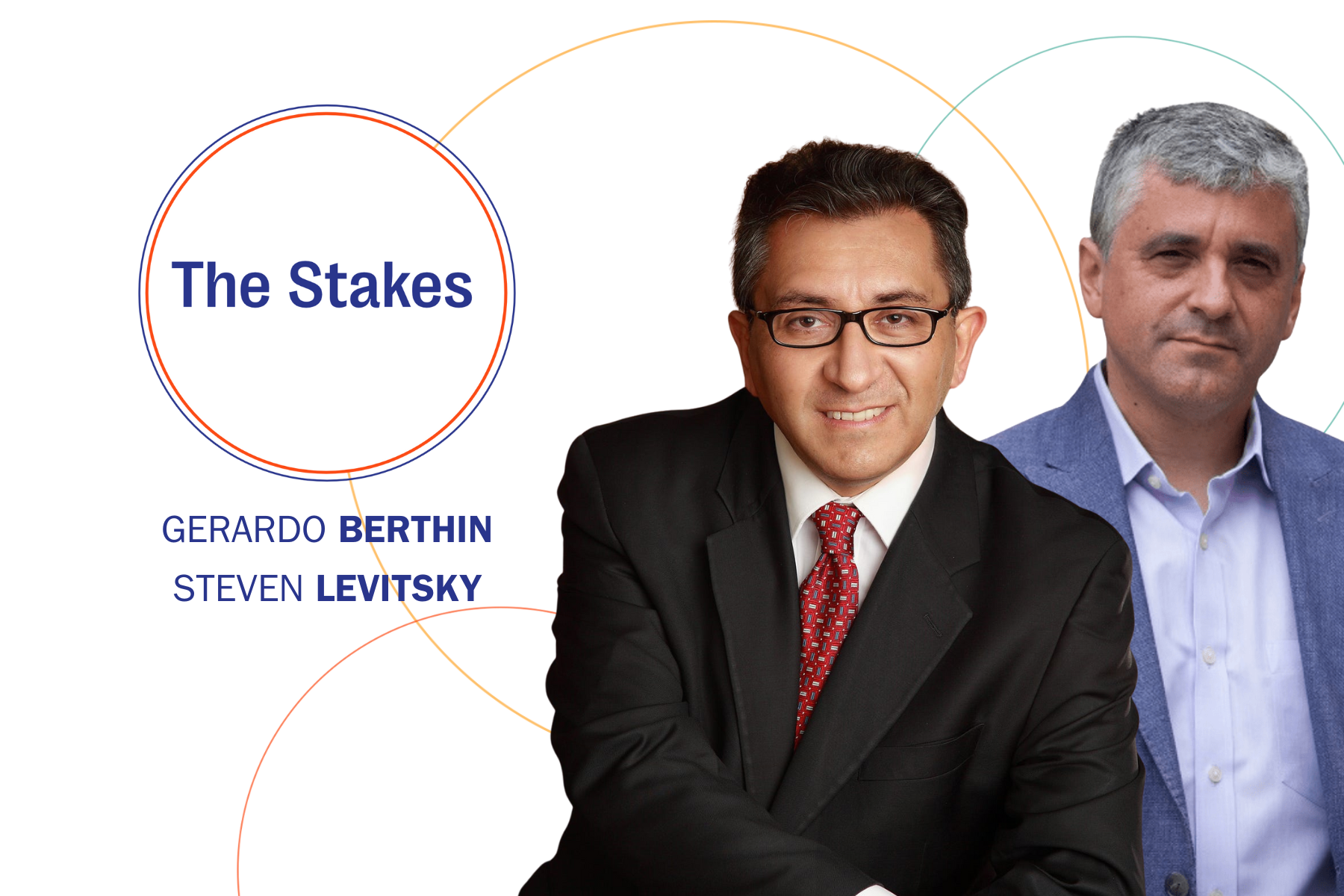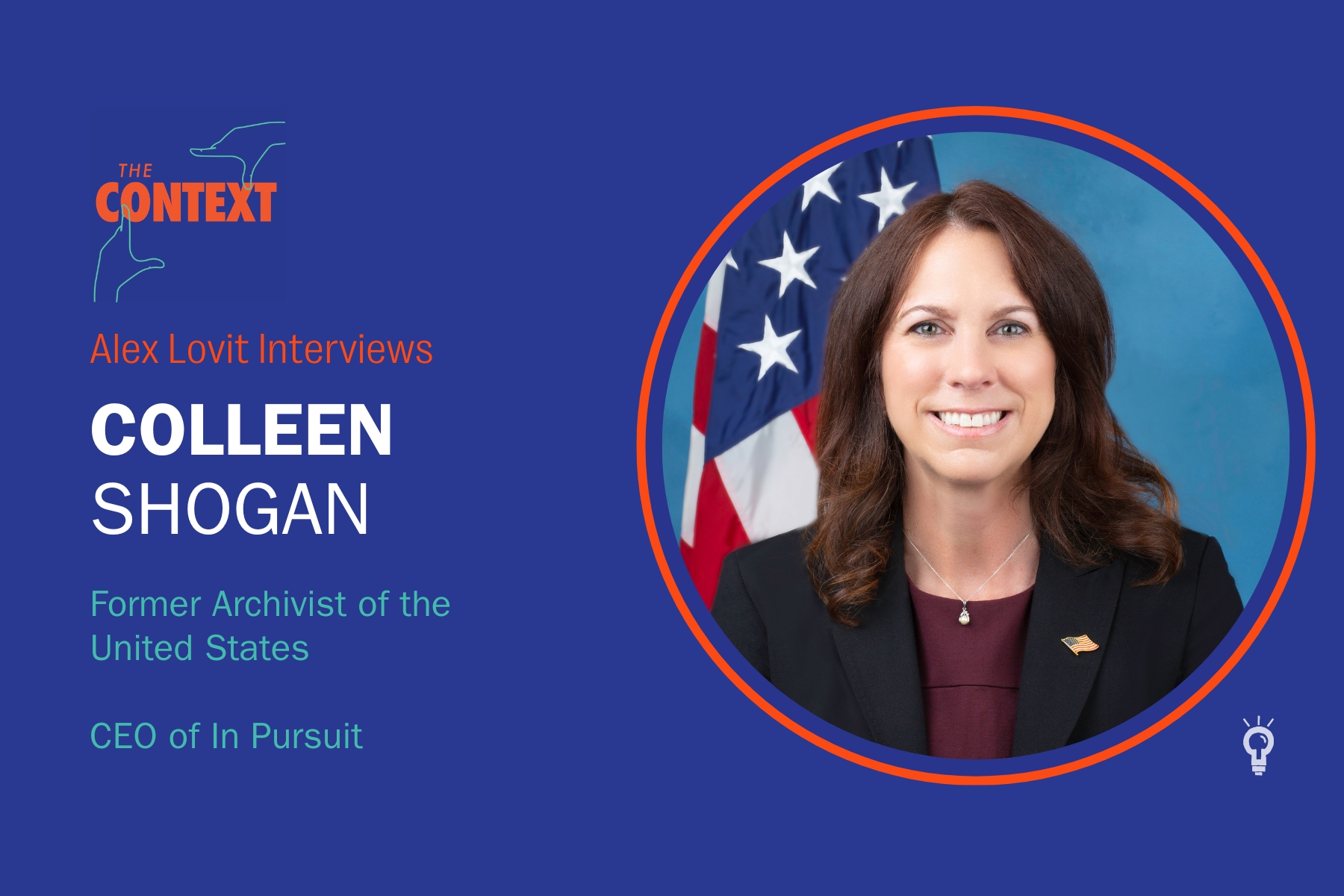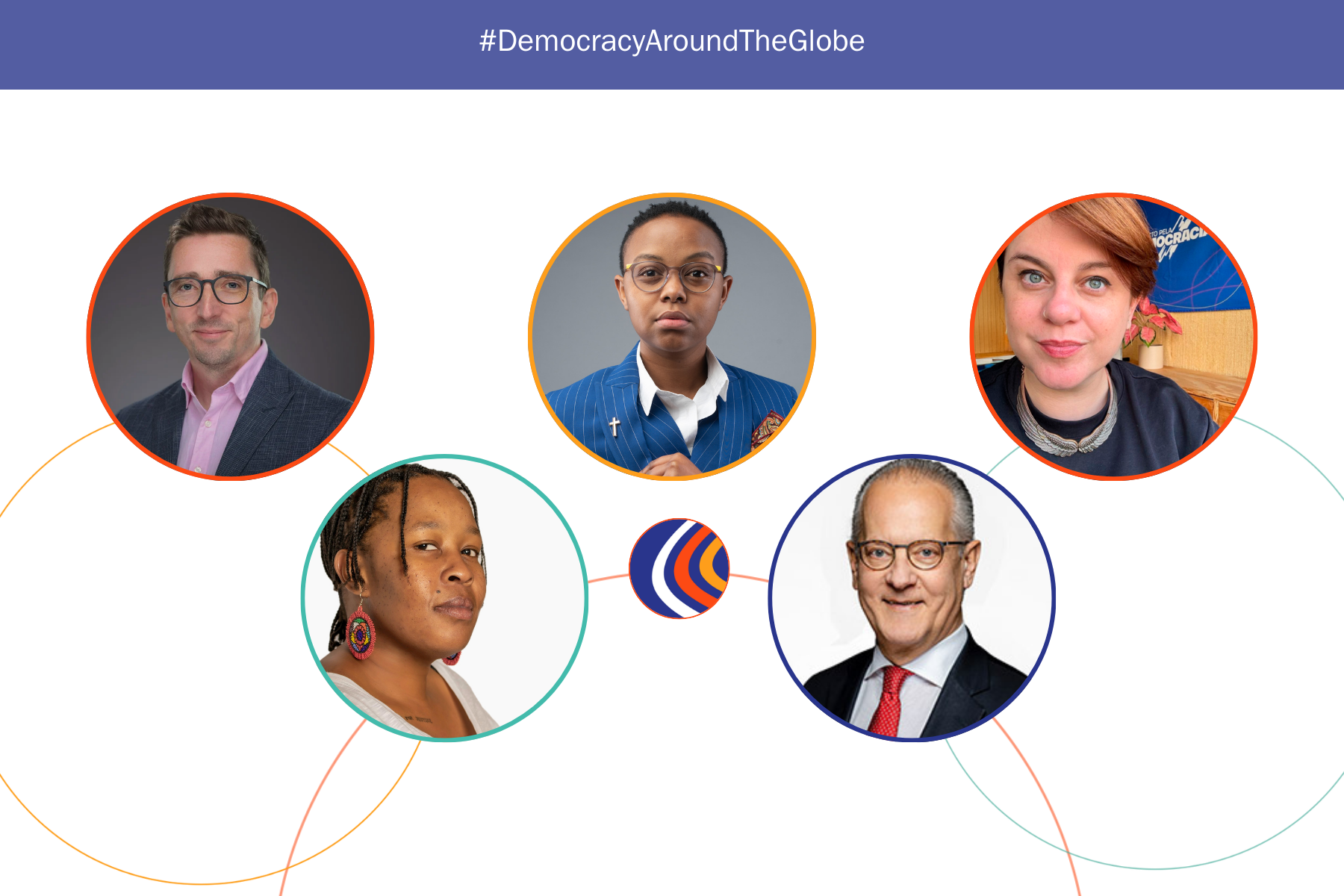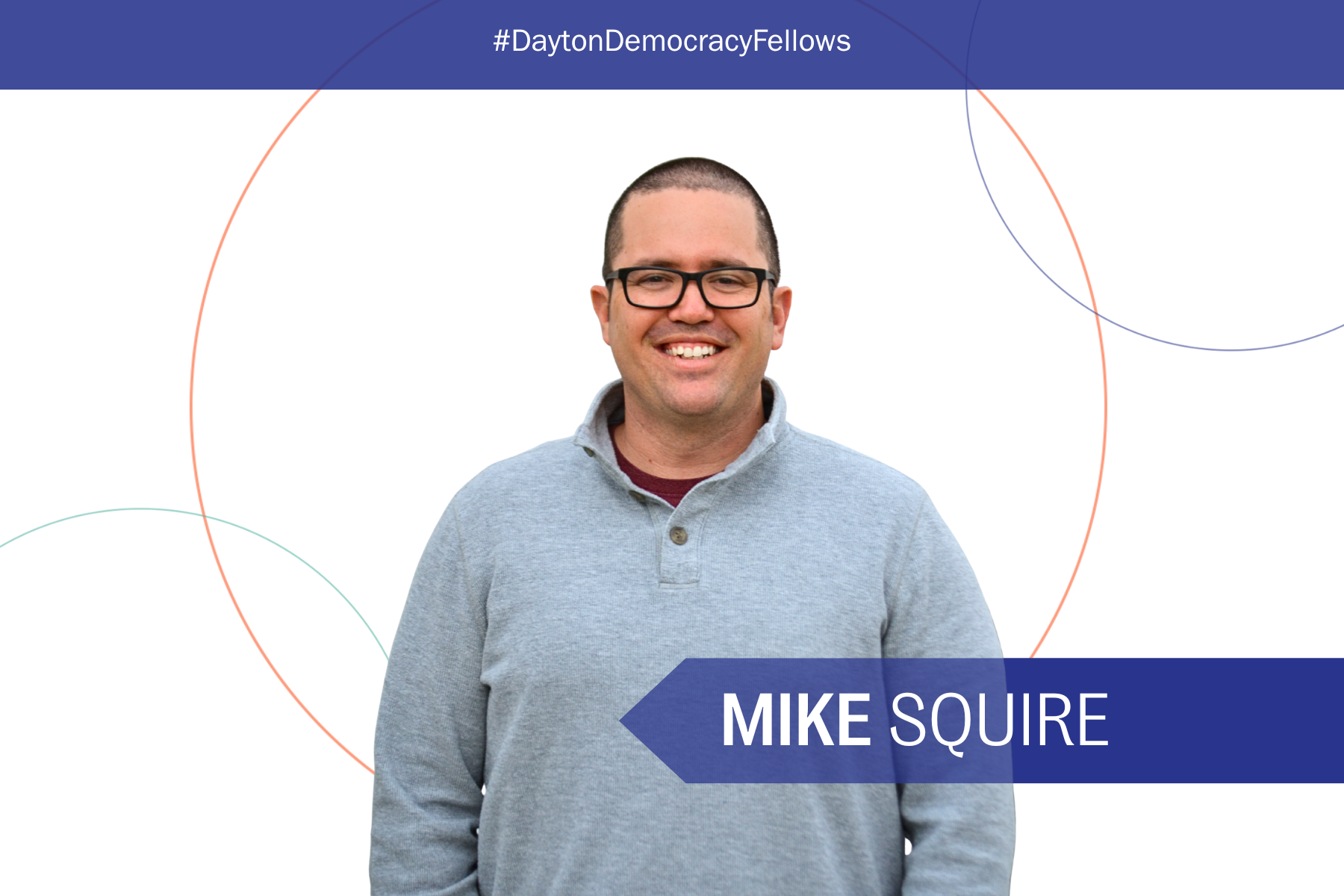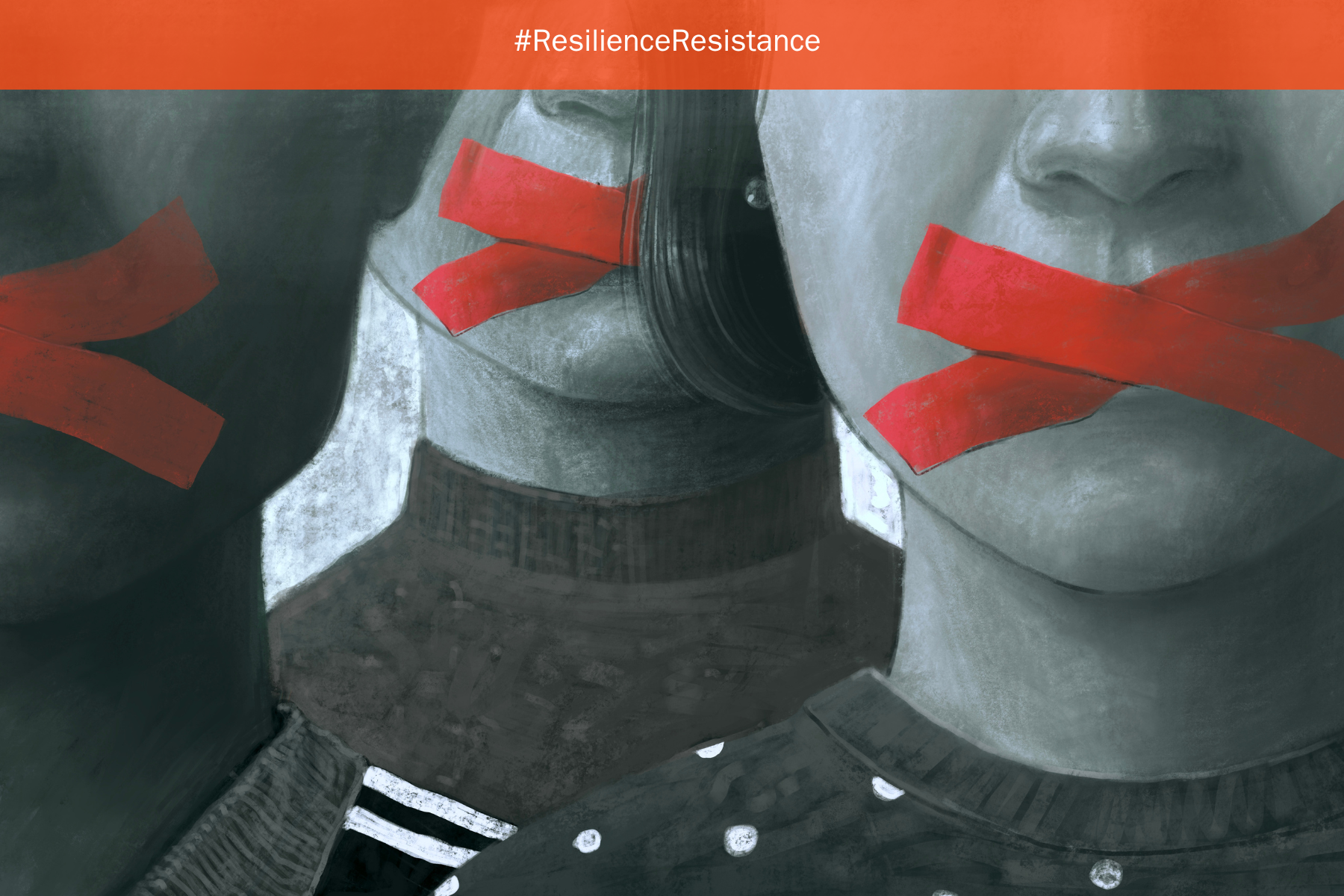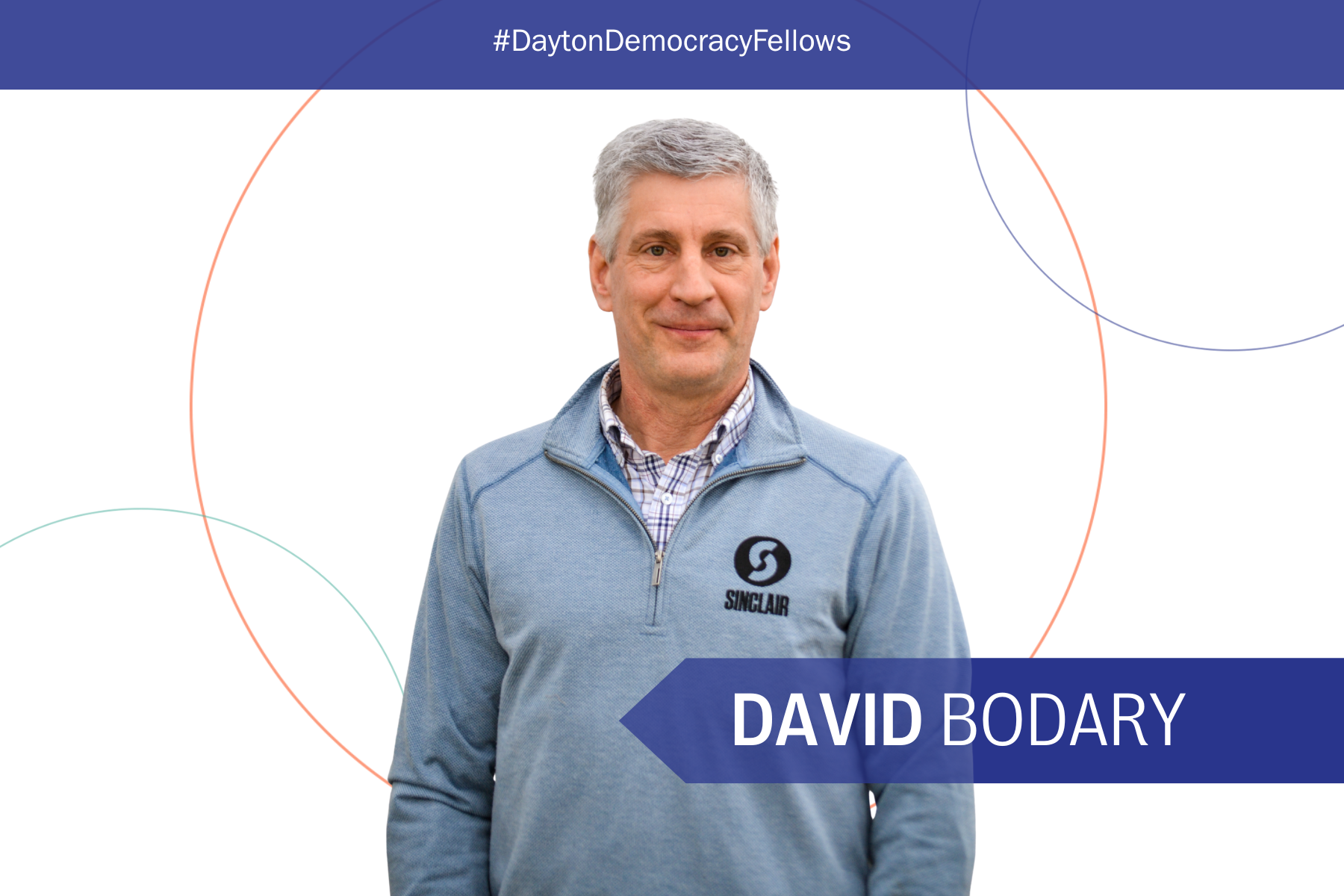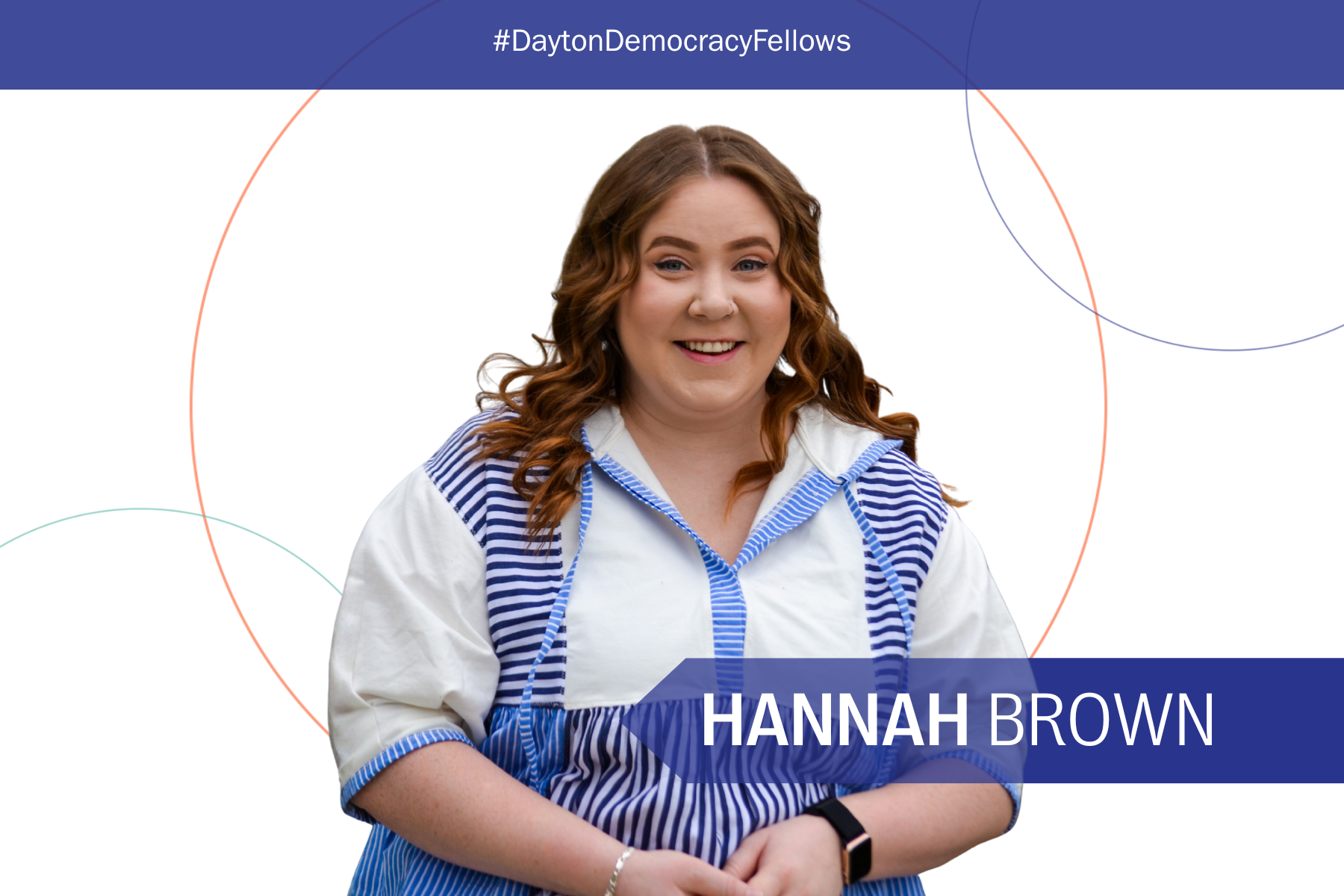Tom Roberts: A Servant Leader
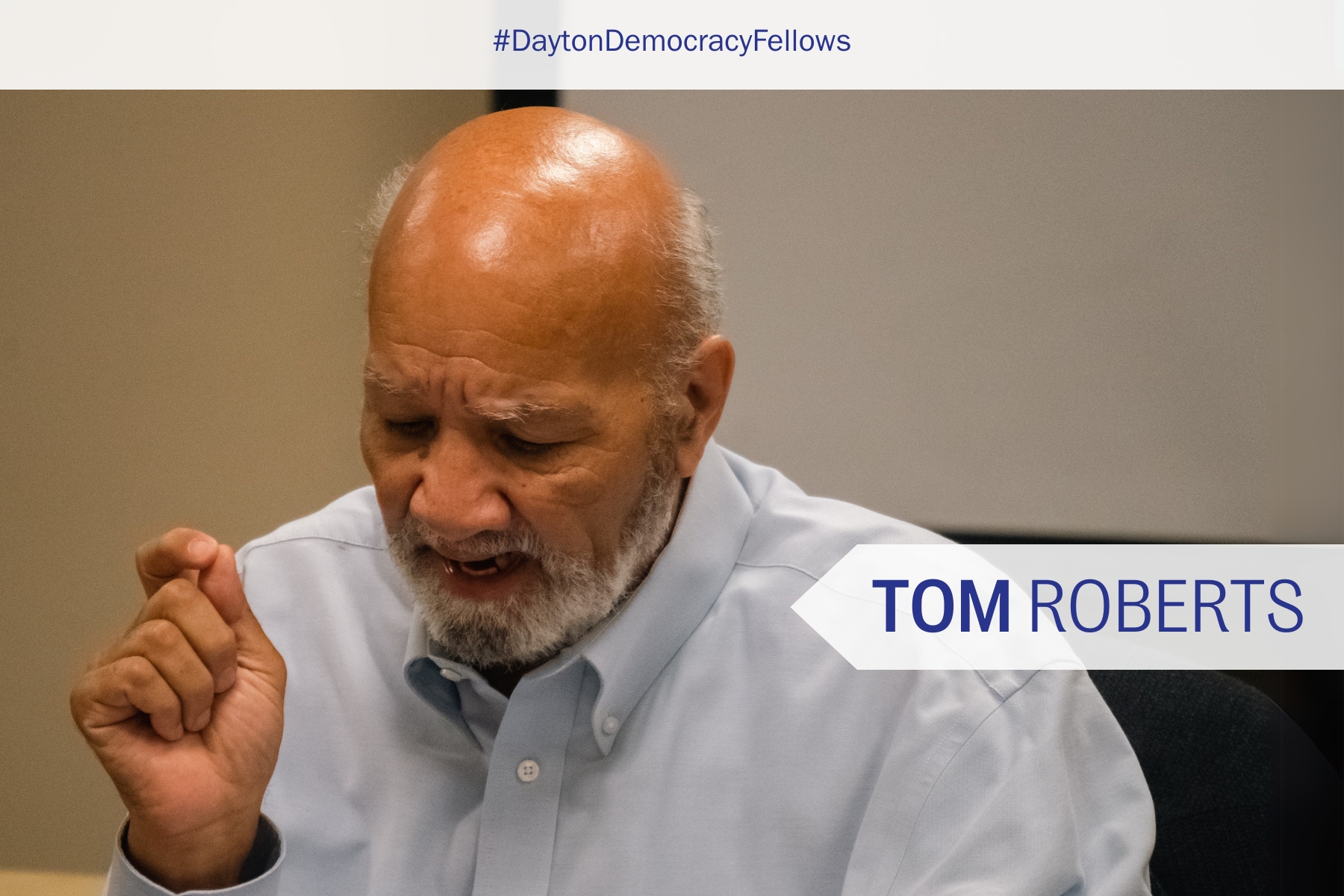
The Kettering Foundation’s Dayton Democracy Fellowship is a one-year program that supports innovative leaders, changemakers, and dreamers who are building movements for inclusive democracy in their communities and in our wider world. This series of articles about the Dayton Democracy Fellows highlights their robust work and the powerful narratives that drive the advancement and defense of democracy.
Dayton Democracy Fellow Tom Roberts learned community service at the kitchen table in a family where he was one of 10 children. “My mom and dad said, ‘You need to give back.’ We all kind of picked it up,” Roberts fondly recalls. His upbringing laid a solid foundation for his future roles as an Ohio state representative, state senator, president of the Ohio State Conference NAACP (where he is currently serving his third term), and a teacher of servant leadership at Sinclair Community College.
As a teen growing up in Dayton, the civil rights movement felt personal. Several of his relatives living in Montgomery, Alabama, personally knew Martin Luther King Jr. “Even though we didn’t know Dr. King, he felt like a family member,” said Roberts. When he attended Chaminade High School, then a Catholic boys’ school, he was told that “if you want to make a difference, you’ve got to get off the sidelines,” which left a lasting impression. He reflected that growing up during the civil rights movement “was a good era to understand my role in a democracy.”
Roberts became a dedicated public servant as demonstrated by his service in both the Ohio House and Ohio Senate, where he represented the people of the Miami Valley for more than 20 years. He was later appointed by the governor to the Ohio Civil Rights Commission, where he served honorably for 6 years.
In addition, Roberts has served as advisor for the Sinclair College Ohio Fellows program for the past 25 years. The program was founded on the principles of servant leadership, a concept developed by Robert K. Greenleaf, the author of influential books such as The Servant as Leader and The Institution as Servant. Greenleaf is recognized as the pioneer of the servant leadership movement.
“Greenleaf wanted to make it very clear that the best leaders are willing to serve first. It begins with your natural feeling that you want to serve. Other people’s needs become your highest priority,” said Roberts.
He went on to note that servant leaders share certain qualities. “Listening empathically is powerful. Those who do that are the best servant leaders,” he said.
“The day I left the [Ohio] General Assembly in 2009, in my farewell speech I talked about how we can work together, and servant leadership is the best way to do it. For me, it’s not something I just have in a book on the shelf and look at every so often. I try to live it.”
His vision of servant leadership is helping to guide his next set of projects. Roberts is concerned that people are so repelled by political wrangling that they don’t participate in democracy.
“What worries me is that people don’t get involved because they are turned off by all of the bickering and the fighting among the elected officials in Washington and in the state Capitol,” he said. “We’re having a hard time getting people to vote because they don’t think their vote counts. They believe officials will not listen to what they have to say. I think people get discouraged, and then they don’t participate in democracy.”
One of his favorite and inspiring stories involves three African American women in Jefferson Township in Ohio’s Montgomery County who opposed the Army’s plans to relocate toxic chemicals from Kentucky to their community. They fought the Army and won by holding public meetings, organizing forums, and publicizing their grassroots efforts in cities around Ohio. “You can fight city hall, but you have to organize,” said Roberts.
Roberts has many projects to keep him busy, and his role as a Kettering Foundation Dayton Democracy Fellow will further enhance his work. He plans to organize several workshops for the public focusing not only on understanding the different branches of government but also on how state budgets are put together and operate. Additionally, as a board member of Dayton’s International Peace Museum, he aims to highlight the dangers that violence and threats pose to our democracy, both globally and domestically.
After a lifetime of public service, he wants to keep giving back—as a servant leader should.
“The author Parker Palmer wrote a book called Healing the Heart of Democracy, and he portrays it as a love affair that you would have with your significant other,” Roberts said. “So, we have this love affair with America, but we have to put our hearts into it. If we say we love America, what does that mean? . . . We need to encourage people to fall in love with democracy.”
“You know, for me the word democracy in and itself means citizen. Citizens rule,” he said.
Maura Casey is a former editorial writer for the New York Times and has worked with the Kettering Foundation since 2010.
The Charles F. Kettering Foundation Dayton Democracy Fellowship is a one-year program designed to support innovative leaders, changemakers, and dreamers who are building movements for inclusive democracy in their communities and in our wider world.

